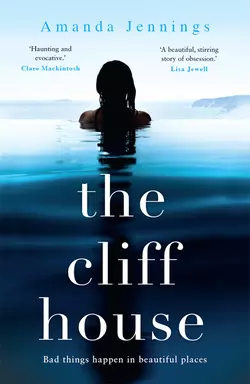The Cliff House: A beautiful and addictive story of loss and longing

Amanda Jennings
Тип: электронная книга
Жанр: Современная зарубежная литература
Язык: на английском языке
Стоимость: 774.44 ₽
Статус: В продаже
Издательство: HarperCollins
Дата публикации: 16.04.2024
Отзывы: Пока нет Добавить отзыв
О книге: ‘Haunting and evocative.’ Clare Mackintosh‘A beautiful, stirring story of loss and obsession’ Lisa JewellSome friendships are made to be brokenCornwall, summer of 1986.The Davenports, with their fast cars and glamorous clothes, living the dream in a breathtaking house overlooking the sea.If only… thinks sixteen-year-old Tamsyn, her binoculars trained on the perfect family in their perfect home.If only her life was as perfect as theirs.If only Edie Davenport would be her friend.If only she lived at The Cliff House…Amanda Jennings weaves a haunting tale of obsession, loss and longing, set against the brooding North Cornish coastline, destined to stay with readers long after the final page is turned.What readers are saying about Amanda Jennings:′Yet another novel by Amanda Jennings that once you start you can’t put down.′′I′m so pleased that this is another gem. The tension throughout is palpable and I couldn′t put it down.′′Such a brilliant book and so well written.′′I was very disappointed to emerge from it and discover that I was not, in fact, in Cornwall.′′It is atmospheric of the place it′s set, Cornwall, and together with an intriguing storyline this was a fabulous read.′′I can′t tell you how much I enjoy Amanda Jennings′ novels. This is no exception. The intriguing characters keep the pages turning and I couldn′t put it down.′